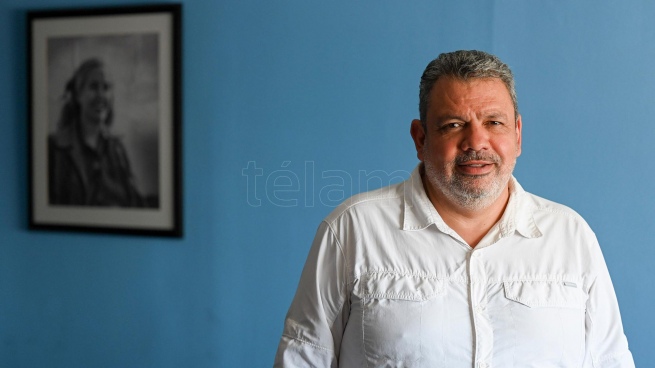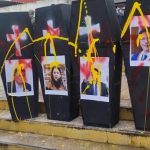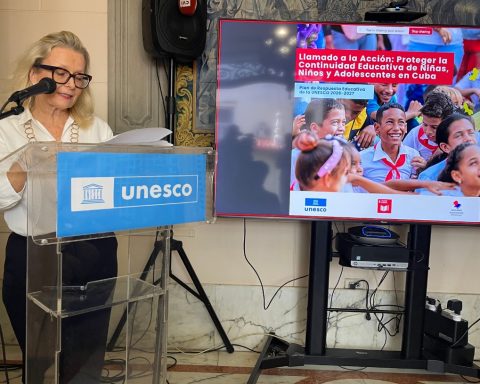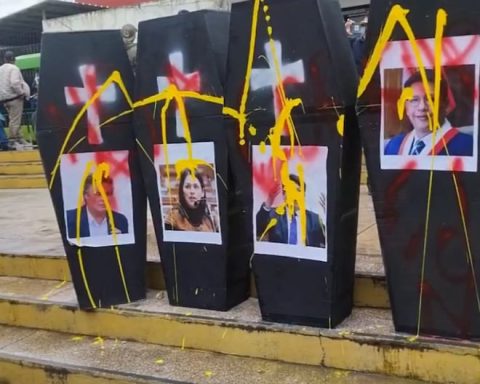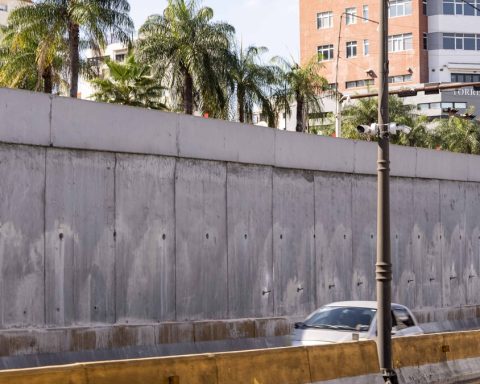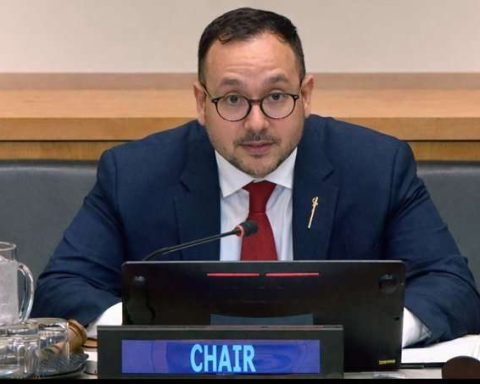The Vice Minister of Social Development, Gustavo Aguilera, affirmed this Thursday that “Argentina will move forward with the generation of work and production,” he said that “there is clearly a political motivation” in the protests and camps that are carried out by sectors linked to leftist and social organizations. He stressed that the government will insist on “dialogue and agreements to resolve pending problems.”
“I have no doubt that we are going to get ahead, following this path outlined by the Government and this Ministry (of Social Development) to recover what the Argentines lost, in a specific way: to generate new work throughout the country,” Aguilera said. , in statements to the Télam agency.

-Télam: What is the government’s response to this protest camp on 9 Julio Avenue?
–Aerie: In principle, we say that we, from the national government, dialogue with all social sectors. That includes the mayors, governors, the churches and, of course, also the social movements and picketers. With the vast majority we reach agreements; we achieved it during the worst moment of the coronavirus pandemic, a very difficult time for the country and for the people. We have articulated a lot and together we guarantee food assistance, social peace and dignity in one of the hardest moments in the country. We are in a pivotal stage in Argentina, a moment in which change begins and in which we emerge from the health emergency.
-T: But these sectors that camp in front of Social Development do not agree with this vision that the Government has, how are these differences managed?
–TO: We are proposing them to agree on and articulate policies linked to production, to the delivery of machinery, tools and supplies, and what they want is registration of the Work Power Plan. This minister (Juan Zabaleta) has taken measures that have to do precisely with directing the resources of this Ministry (of Social Development) towards productive policies and job creation, not towards new social plans. That is our decision and the vast majority of social movements agree with this.
-T: But the protesters argue that they demand new jobs…
–TO: No, they are asking for several things. Last Monday with the minister (Juan) Zabaleta and part of his team, for two hours, we proposed concrete things. And we agreed, on the one hand, to guarantee food policy, despite today’s global food crisis. We also proposed to strengthen some production units and we agreed. And we did not agree on two things: they want new plans to Promote Work and their discharges, and they also want that benefit to be restored to the people who threw stones a few days ago at the National Congress and for which the minister made the decision not to activate those discharges. And I reiterate, this Government and this Ministry of Social Development will continue to work linking social plans with genuine work.

-T: Could it be that there is another motivation of these sectors of the leftist movements that protest?
–TO: The Polo Obrero (PO), which is leading this conflict, a month ago in Plaza de Mayo, approved a plan of struggle where today’s camp was contemplated. And that plan called for meetings. Well, we had the meetings and yet it was not enough. There is clearly a political motivation; if not, the excess of the claim is not understood. The picket line was born in Argentina by governments that did not listen, that were insensitive and looked to the side. Well, we meet all the time and we will continue to urge dialogue as a way out of problems.
-T: Why do you think then that these sectors persist in that position?
–TO: In some cases, it seems that the worse the better. What also happens is that in Argentina, I’m not saying that everything is fine, but what must also be said is that the economic indicators today show that the socioeconomic situation is improving. If we go deeper and focus on genuine work and national production, we will recover everything lost in the labor field. The country will come out ahead with job creation; not with social plans. That is the discussion we are having and we are going to keep the focus there, on the new Argentine work.

-T: Is there already new data from businessmen who have taken unemployed people with social plans for their factories?
–TO: There are already employers who are taking workers who were out of work. Obviously with their corresponding training. There is an articulation between the Ministry of Social Development, the business chambers, such as the construction, textile, gastronomic, automotive and unions with the same objective of generating work. And an example is what happened with the Toyota company, which will take workers who are beneficiaries of the Potential Work Plan to its plants. People who used to charge 16,500 pesos are going to start charging 90,000 pesos. These cases are still few, but it is happening systematically throughout the country and that is the way to go: link the social plan with the new work throughout the country.
-T: And in what stage is the dialogue with the other social movements in the country?
-TO: We are working hard, as I said before, talking to all social sectors. We follow the path traced by this minister (Juan Zabaleta) of working with everything he does to urbanize popular neighborhoods throughout the country. This ministry and its officials spoke and speak with all social organizations, and the vast majority articulate and accompany our initiatives.
